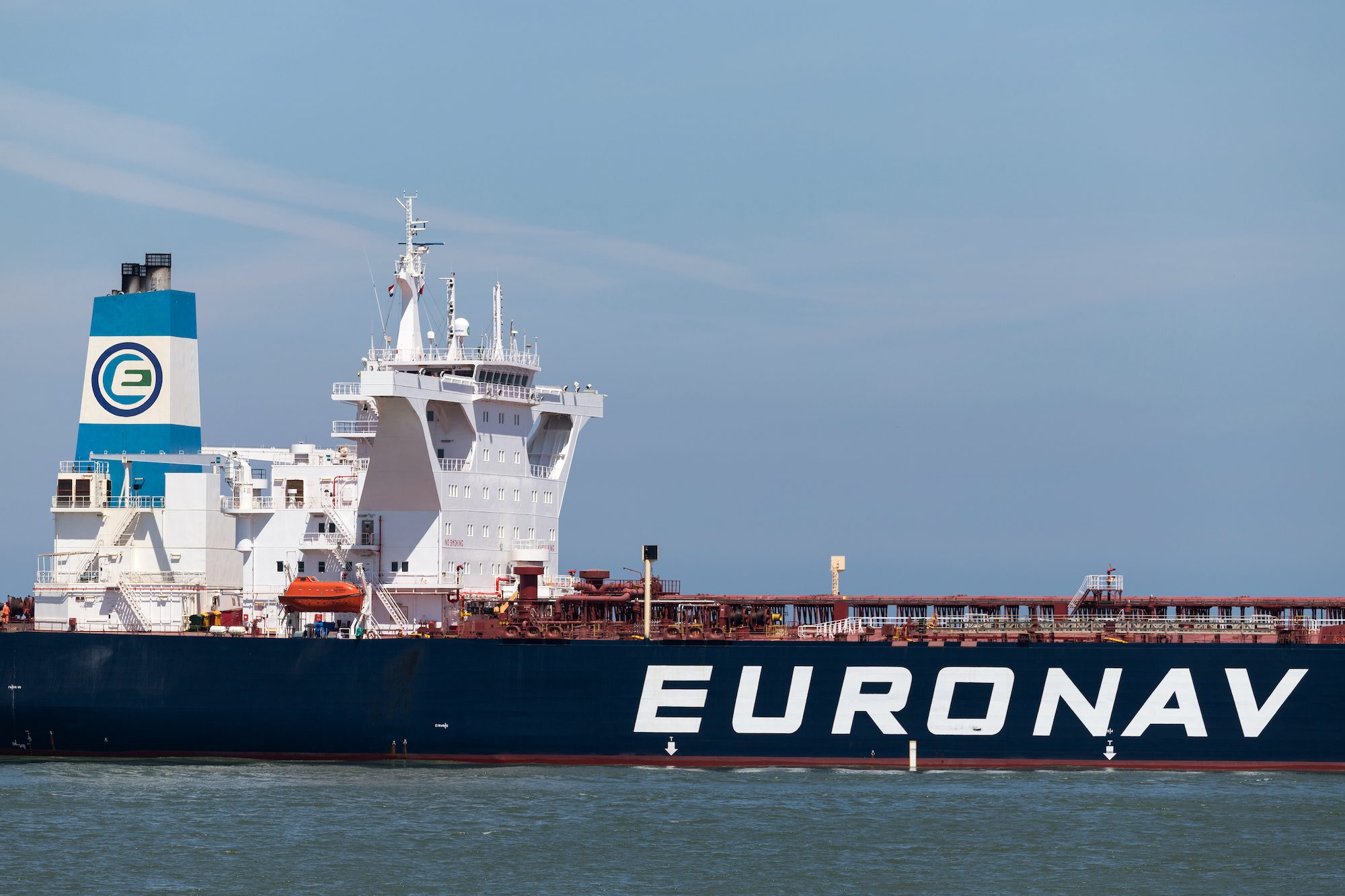U.S. Customs Revenue Tops $100 Billion for First Time Amid Tariff Surge
US revenue from customs duties this fiscal year surpassed $100 billion for the first time, reflecting higher tariffs imposed by the Trump administration.

Ship finance, a topic of paramount importance at the executive level, was the subject of multiple panels at last month’s Connecticut Maritime Association (CMA) conference, when a group of bankers and shipping executives provided a good overview of the landscape, while delving into its intricacies.
Though discussions of capital markets and big institutions can sometimes be off-putting, with jargon overflowing, the CMA panelists brought a very practical focus to a range of important topics, in a session held in the morning of the CMA’s final day, which culminated in its Commodore dinner.
A top executive with DNB Bank ASA, the Norwegian shipping debt provider, Evan Uhlick, its Senior Vice President and Head of Ocean Industries North America, framed the discussion nicely. In highlighting the pullback of traditional shipping banks (notably in the United Kingdom- Royal Bank of Scotland was mentioned, and Germany), he said “The level of bank market supply is appropriate for the level of demand,” which he further described as “an equilibrium state”. He then pointed to fellow panelists Jeff Pribor, from listed tanker owner International Seaways, and Hew Crooks, from privately held Ridgebury Tankers, and said that these companies “are both seasoned borrowers… they are able to attract capital.” Mr. Uhlick then said: “I think that the market test is when you need to do a high velocity $ 1 Billion syndicated deal of new money… putting $1 billion of new money to work that’s going to require 10 – 15 banks to lift that deal. That is going to be the litmus test of how that’s going to look.”
Mr. Uhlick’s market test will need to wait a little while longer, in spite of some big news. Barely a week after the CMA’s finance panel, shipping’s deal mavens were energized by announcements of a tentative merger deal struck between two giants in the fragmented tanker business (two of the bigger fish in an overwhelmingly large pond), Frontline (NYSE: “FRO”) and Euronav (NYSE “EURN”).
Though not a complete surprise; FRO had built a position in EURN shares, and had been required to disclose this late last year. The merger deal, which has passed muster by the Boards of both companies (but not by regulators), is an all-stock transaction. So Mr. Uhlick’s hypothetical bank consortium will remain on the sidelines, for now.
The deal, which as contemplated will be effected through the exchange of 1.45 FRO shares for each EURN share, comes at a time of a weak tanker market, especially for larger vessels. When the dust settles (and if the deal closes), the result will be that EURN shareholders will own roughly 60% of the merged company, to be named “Frontline”, and existing FRO investors will own the remaining 40%.
Based on recent capitalization (shares outstanding and current prices per share), the combined company, which would own 146 tankers (almost half of which are VLCCs) would be worth roughly $4.2 billion.
Frontline, synonymous with its Chairman (and Founder), John Fredriksen, had been active in acquiring companies during the 1990s and into the early 2000s. However, his acquisitive streak had slowed down in recent years (while that of EURN, which stayed with tankers and avoided offshore energy assets, had picked up the pace).
Financials aside, there is a lot of history and CMA trivia to unpack here. Long-time attendees of CMA festivities will remember the Commodore Dinner, of 2008, when Mr. Fredriksen, as he was being presented with the Commodore award, whispered in the ear of Morten Arntzen (the 2007 recipient of the Commodore honor) that FRO was buying a large block of shares in Overseas Shipholding Group (OSG), where Mr. Arntzen was the CEO. His efforts to build a larger position in OSG were stymied.
Other CMA Commodores figure into the drama. FRO had gone after General Maritime (whose Peter Georgiopoulos, or just “Peter G”, was the 2004 Commodore), unsuccessfully, while EURN had succeeded in 2018, in acquiring Gener8, which had previously acquired Peter G’s company. Oh, by the way, Marc Saverys, the scion of the family that founded Euronav (and maintains a large ownership position through CMB), was the CMA Commodore in 2001. In 2015, Paddy Rodgers, then CEO of Euronav (now working outside the business as Director of the Royal Maritime Museum in the UK), also received the Commodore Award.

Sign up for gCaptain’s newsletter and never miss an update

Subscribe to gCaptain Daily and stay informed with the latest global maritime and offshore news


Stay informed with the latest maritime and offshore news, delivered daily straight to your inbox
Essential news coupled with the finest maritime content sourced from across the globe.
Sign Up